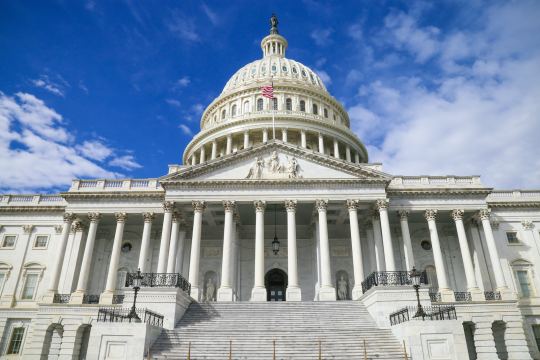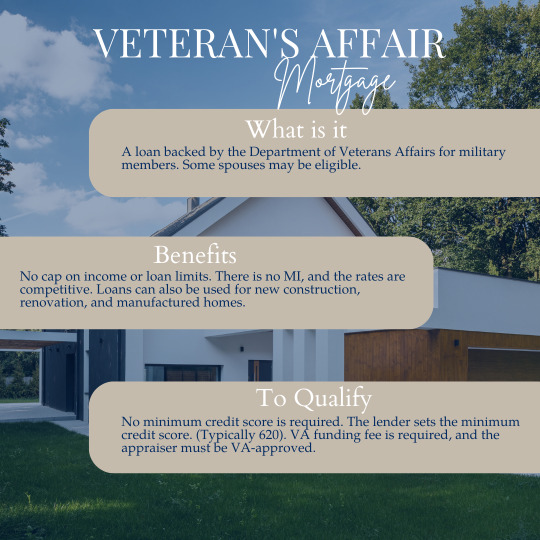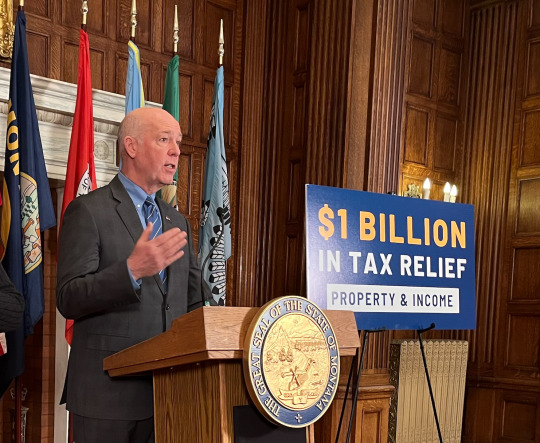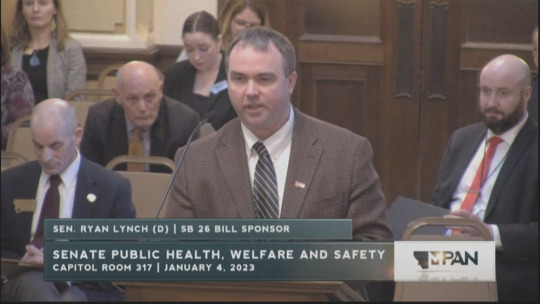#Military Construction/Veterans Affairs
Text
Where we stand (25th of October, 2023)
The House continues to be missing in action as they prepare to vote on their fourth speaker-designate.
The Senate began action to bring appropriations bills passed by the House to the floor. These include:
H.R. 4365, Defense, https://www.congress.gov/bill/118th-congress/house-bill/4365
H.R. 4366, Military Construction/Veterans Affairs, https://www.congress.gov/bill/118th-congress/house-bill/4366
H.R. 4367, Homeland Security, https://www.congress.gov/bill/118th-congress/house-bill/4367
H.R. 4368, Agriculture/RuralDev/FDA, https://www.congress.gov/bill/118th-congress/house-bill/4368, and
H.R. 4665, State/Foreign Ops, https://www.congress.gov/bill/118th-congress/house-bill/4665
If the Senate passes these bills, there will most likely be amendments and those amendments must come up for vote in the House, or be put to a conference committee, appointed by the party leaders in the House. So, no go at this time.
#government shutdown?#continuing resolution#congress#senate#house of representatives#appropriations#FY2024#Defense#Military Construction/Veterans Affairs#Homeland Security#Agriculture#State/Foreign Ops#on Senate passage#amendments
4 notes
·
View notes
Text
RED ALERT: Over 140 House Democrats are urging for the reinstatement of the provision in the Military Construction, Veterans Affairs, and Related Agencies Appropriations Act that allows for the restriction of veterans from purchasing or owning firearms under specific circumstances.
79 notes
·
View notes
Text
Welcome to shutdown watch 2023, where the House and Senate try to fund the federal government before the fiscal year 2024 before funding runs out at midnight on September 30th — or else, the government shuts down.
There are precious few legislative days left for both chambers this month, and none of the appropriations bills that need to be signed into law to stave out a shutdown have passed both chambers (in fact, just one, Military Construction and Veterans Affairs, has passed the House).
Right now, there are three scenarios in play:
Congress does nothing and shuts down the government at midnight on September 30th;
Congress passes one or more continuing resolutions (“CR”) that extend FY2023 funding at current levels until a certain date, moving a potential shutdown date further down the calendar, likely around the Christmas holiday.
Congress passes some or all of the 12 separate appropriations bills to fund the government through September 30, 2024, averting a shutdown for some or all of the federal government.
Here’s a look at more about each of the those possible scenarios:
No appropriations bills pass by Sept. 30
This one’s easy: if Congress doesn’t pass any funding bills, the government shuts down at midnight on Sept. 30 until they reach an agreement to fund all, or some, of the federal agencies that require Congress to appropriate funds.
Congress passes some, but not all, its appropriations bills
This path is relatively straight forward too — in this case, there is a partial government shutdown. The agencies that have been funded remain open and begin operating at their funding levels for the 2024 fiscal year. The agencies that haven’t been funded shut down.
One wrinkle here is that Congress can sidestep a shutdown by passing a continuing resolution that takes those unfunded agencies and extends their funding at 2023 fiscal year funding until full appropriations bills pass, or those continuing resolutions expire.
Congress passes a full continuing resolution for the federal government
This is an effort to kick the can down the road, with the government remaining open at previous funding levels while Congress works to pass the full year appropriations bills.
A “clean” CR: This would be a continuing resolution that continues FY2023 funding with zero changes. This is what Democrats (as well as many Republicans) would prefer and vote for. But some House conservatives say they won’t support a CR to extend FY2023 funding because they don’t agree with the current government funding levels. Just 9 House Republicans voted in favor of the last government funding bill in December 2022; 200 voted against.
A “conditional” CR: Some conservatives plan to use the leverage of a narrow Republican majority to demand policy changes to FY2023 funding levels in return for averting a government shutdown. This would likely alienate House and Senate Democrats, and potentially Senate Republicans as well. But if the House and Senate cannot agree on one version of a CR by midnight on September 30th, the government will shut down.
How long would a CR last?: This is still undecided; the House and Senate leadership have to get together to hammer out a deal. A CR can last for a few days, weeks or months. In previous years, congressional leaders have passed a CR in late September that expires just before the holidays to increase pressure on rank and file lawmakers to agree to a broader funding deal and avoid a pre-Christmas shutdown. McCarthy has publicly vowed not to do that.
It’s possible that Congress can’t agree to a permanent funding bill after one continuing resolution, forcing them to either agree to another one or prompting another government shutdown. Additionally, if all 12 appropriations bills are not signed into law by the end of 2023, there will be an automatic 1 percent cut to all discretionary spending (this does not include mandatory spending programs like Medicare, Medicaid and Social Security). The automatic cut was included in the agreement reached earlier this year to raise the debt ceiling.
And here are some other frequently asked questions that could arise during the funding debate:
What happens during a government shutdown?
Agencies are minimally staffed by employees who have been deemed “essential.” They work without being paid, while all “non-essential” employees will be sent home — though in previous shutdowns, Congress has passed legislation to give back pay to workers. Typically, law enforcement and prison employees, TSA employees, Border Patrol, Forest Service Firefighters, and Weather Service forecasters are deemed essential and work without pay. Most automatic government benefits like Social Security, Medicare, and Medicaid are paid out (they have a separate funding stream), though some benefits like WIC and school meals that are funded through the appropriations process will be cut off. The various litigation efforts targeting President Trump would continue. Congress historically has been unable to issue subpoenas during a shutdown, but that guidance is still being developed for this year.
What about funding for Ukraine and disaster relief?
In mid August, Biden sent a request to Congress for an additional $40 billion dollars in additional money for Ukraine ($24 billion), ongoing federal disaster relief ($12 billion), and border security ($4 billion). At the end of the month, following Hurricane Idalia, he said he was going to request another $4 billion. This kind of money is called a “supplemental appropriations request” and is usually passed outside of the normal funding process. Several more conservative House and Senate Republicans have expressed hesitation or opposition to continued Ukraine funding.
7 notes
·
View notes
Text
With Republicans, absolutely EVERYTHING is about abortion. It doesn't matter to them that being fanatically anti-abortion has cost them with voters over the past 13 months.
The GOP reminds me a little of Charles-Maurice de Talleyrand-Périgord's alleged comment: Ils n'ont rien appris, ni rien oublié.
To hear them tell it, House Republicans are solely focused on fiscal conservatism, on undercutting the appropriations levels agreed to in the Kevin McCarthy-Joe Biden debt ceiling law so they can “rein in federal spending.”
That’s what they’d like to be fighting about. But their actions, the riders they’ve larded up these bills with, reveal a different priority: an obsession with fighting battles in the culture war, a fixation on extinguishing any semblance of abortion access in particular, no matter the repeatedly demonstrated political radioactivity of the issue post-Dobbs.
The add-ons are less poison pills and more a poison buffet for Democrats, ensuring that these versions of the bills will never see the light of law. They risk cutting House Republicans out of legislative relevance altogether, shifting the onus to the Senate to write bills that can actually pass. They could create a debt ceiling law redux where the legislation ultimately passes on the backs of mostly Democrats plus the Republicans still willing to play ball. Or they could shut down the government.
A radical activist minority in the party constantly goes out of its way to advertise that the GOP favors very unpopular policies and demonstrates that it is unfit to govern.
One is abortion, the same issue that sent Democrats fleeing from the once-bipartisan National Defense Authorization Act when House Republicans included a provision that would prohibit the Defense Secretary from covering or reimbursing service members’ abortion-related expenses. Democrats told reporters that they’d heard from Republican colleagues expressing vexation that the party kept returning to this losing issue — only to vote for the final product anyway.
Abortion restrictions have cropped up in the appropriations process again and again, even in unexpected places.
In the bill to fund Military Construction, Veterans Affairs, and Related Agencies, a rider would largely prevent the VA from implementing a rule that allows the agency to provide access to abortions for pregnant veterans and VA beneficiaries when the health or life of the pregnant woman is at risk, or when the pregnancy is the result of rape or incest.
In the Agriculture-Rural Development-FDA funding bill, a GOP rider would reverse the FDA’s late 2021 decision to allow the abortion drug mifepristone to be dispensed in certified pharmacies in addition to traditional health care settings like hospitals and clinics.
In the Homeland Security subcommittee, a rider specifies that no funds earmarked for ICE can be used to pay for an abortion, with very limited exceptions.
And in the Financial Services and General Government subcommittee, Republicans targeted abortion both for federal employees and for residents of Washington D.C., which has a home rule system with congressional oversight that allows federal lawmakers to interfere with its local governance. The GOP provisions would both prohibit the use of federal or local funds for nearly all abortion services in D.C., and require that the district report back to the House Republicans that it has followed the congressionally imposed (locally opposed) abortion restrictions. That reporting requirement would mandate that the district detail its compliance with Republicans’ “Partial Birth Abortion Ban,” including “whether the District of Columbia preserved each child’s remains for appropriate examination during the investigation” and “whether the District of Columbia conducted a thorough investigation of the death of each child and what each investigation showed.”
In addition to that Talleyrand quote, extremist Republicans also remind me of one usually attributed to Winston Churchill: A fanatic is one who can’t change his mind and won’t change the subject.
There are other issues which House Republicans are trying to force feed the country – but abortion stands out above the others.
If Republicans want the 2024 election to be a de facto referendum on abortion, we shouldn't stand in their way.
Last year voters in deep red Kansas overwhelmingly voted down a Republican attempt to remove reproductive freedom protections from the state constitution. Polls around the US regularly show support for reproductive freedom at the 60 percent level.
Every Republican running for office should be made to go on public record stating whether he or she supports a woman's right to choose.
#abotion#republicans#the gop#gop anti-abortion fanatics#us house of representatives#reproductive freedom#a woman's right to choose#roe v. wade#dobbs v. jackson women's health#scotus#the sanctity of reproductive freedom#republicans hate freedom#election 2023#election 2024
4 notes
·
View notes
Photo

(via Sue's News: A Round-Up of Screw Yous)
Fuck you to the aforementioned motherfuckers—Mike Pence, Chris Christie, and Doug Burgum—for making the 2024 race even more of a clown show that could once again hand the nomination to Donald Trump.
Fuck you to the Florida lawmakers who passed the Stand Your Ground laws for which delayed the arrest of a white woman who shot and killed her unarmed Black neighbor through her locked door.
Twin fuck yous to presidential candidate Nikki Haley (R) for saying in the same town hall that it’s a middle-ground position that people who have abortions shouldn’t be executed, and for making the disgusting false claim that transgender student athletes are to blame for teen girls’ suicidal ideation.
Another double fuck you to the Republican governors of Texas and Missouri for signing bills to ban gender-affirming care for minors. The Missouri bill also bans Medicaid coverage of the care for adults. (Louisiana’s Democratic governor said he’ll veto a healthcare ban sent to his desk, but the Republicans hold veto-proof supermajorities in both chambers.)
Fuck you to the five Mississippi members of Congress who demanded that the Department of Veterans Affairs remove a temporary Pride flag from a cemetery in Biloxi, MS, claiming it’s disrespectful.
Fuck you to North Carolina State Rep. Tricia Cotham (R)—the woman who was vocally pro-choice before switching parties and voting to ban abortion—for telling reporters that abortion “never been an issue that I was always out there for at all.” Ma’am, we printed your Planned Parenthood endorsement questionnaire where you pledged to oppose any bill that restricted abortion access.
Fuck you to Utah Republicans and activists for getting mad that a school district used a book-banning law to remove the Bible from classrooms due to its references to incest, rape, and sex work. Fuck around and find out, you clowns.
Fuck you to the New York state prison system for thinking it would be fine to further restrict the ability of incarcerated people to create art, write, and produce journalism and to prohibit them from getting paid for that work. (Thankfully, they reversed the directive after swift backlash.)
Fuck you to presidential candidate Sen. Tim Scott (R-S.C.), the only Black Republican Senator, for saying that the concept of systemic racism is a “dangerous, offensive, and disgusting message to send to our young people today.”
Fuck you to Senate Minority Leader Mitch McConnell (R-Ky.) for making the ludicrous claim that the $886 billion defense budget means the military “is radically underfunded related to the Chinese threat.”
Fuck you to whichever awful person tore down the temporary repairs at an Illinois abortion clinic under construction that a 73-year-old man plowed his car into weeks earlier. The clinic has a GoFundMe.
And I’d be remiss if I didn’t conclude this post with a hearty rest in piss to televangelist Pat Robertson, a terrible person and raging homophobe who blamed 9/11 on gay people, who died this week. Fuck you forever, Pat.
4 notes
·
View notes
Text
Everything You Need to Know about Affordable Housing

Investing in affordable housing can be extremely profitable, if you do things right. Many property investors include affordable housing in their portfolio mainly because of the government tax credits associated with them. However, you have to make sure the investment you make is marketable in your area and also profitable.
Although affordable housing is cheaper than other real estate properties, there are a lot of costs associated with them. Apart from the buying costs, there are also the renovation and the maintenance charges you will have to consider, before determining its viability.
The main advantage of affordable housing is the tax credits given by the government. As a property owner, you can receive these tax credits by using a percentage of your property (say a few rental units in your building) as affordable housing. The renters of these houses will also get assistance from the government, to pay their monthly rent.
Eligibility Criteria for Affordable Housing
Affordable housing was introduced mainly to provide housing for people with limited income. These include four groups of people:
Seniors and People with Disabilities
People with disabilities and people aged 65 and above are eligible for affordable housing. They require housing closer to public accommodations, along with some modifications such as handrails, wheelchair accessible bathrooms, ramps instead of stairs, and modified closets and cabinets.
Students
Many students including adult students, university students, and non-traditional college students require off-campus housing that is affordable. They prefer affordable housing that is closer to the campus. Many international students keep looking for affordable housing throughout the year, as they won’t have to make too many international trips.
The Military
Veterans and active members of military service keep looking for affordable housing too. The government (Department of Veteran Affairs) provides them assistance through VA loans to construct as well as buy houses. You can contact any of the VA loan lenders through VA live transfer leads and apply for a VA loan.
Both on-base as well as off-base housing options are available for military service members. However, you need to make sure off-base housing that you select is closer to your base.
Rehabilitation and Re-Entry Programs
Another section of people that requires affordable housing includes homeless families and people with addiction who are in recovery. Adults and children who are into mental health programs and state protective services need neighborhood-based housing and group homes with privacy and adequate facilities.
Apart from the above, people in the lower income group can buy or rent affordable housing, by applying through Section 8 and other subsidized housing programs. However, they have to be aware of their area’s median income. This information should be available on most real estate websites, housing authorities, economic development agencies, and state and local governments.
Determining Profitability and Marketability of Affordable Housing
There are two things you need to consider while investing in affordable housing – profitability and marketability
Profitability
The first step in determining the profitability of your investment is to calculate your operating expenses. For affordable units that you have rented out, you have to add up your taxes, insurance, utilities if any, maintenance charges, transfer costs, and other fees charged by the municipality or your county.
If you are buying affordable housing, your operating costs would include financing costs, closing costs, transfer costs, and labor as well as material costs if you are renovating or constructing the property.
You can add up advertising and marketing costs if any.
Once you have estimated your operating costs, it is time to determine your income. While calculating your cash flow, you should also consider the tax credits and financial assistance that you receive from the subsidizing authority, to pay up your utilities. Deduct your estimated operating costs from this amount to determine your gross profit. Make sure you also consider depreciation charges, if any.
Marketability
You can get information about affordable housing available in your area, from your local housing authority office. Make sure these units meet the guidelines specified for rental subsidies. If you are going to sell the units that you are buying, you will have to consider your renovation or construction costs, to establish their profitability. If they are not profitable, they cannot be marketable.
You can also consider buying foreclosed homes acquired by your local economic development agencies. The guidelines for buying these houses may be different for different regions. Also, these units may usually need significant rehabilitation. The turnaround time required to resell these is also longer.
One other way to find affordable housing is to enter the FSBO or For-Sale-By-Owner market. With information from realtors, you can find many short sale deals with sellers looking for quick sales at reduced price for a reduced mortgage payoff. You can fix them up and resell at profitable pricing.
Successful investment in affordable housing is all about timing the market well. It may not be a good time to purchase properties if the financing, labor, and material costs are high. At the same time, it may not be the right time to put your unit up for sale if there aren’t too many renters. If the median income and the market rent of your area is high, it might make sense to retain your property and enjoy the rental income it generates every month.
Special Considerations for Affordable Housing Investment
You need to be a business executive, an investor, or a landlord, to invest in affordable housing. As a landlord you can help families and the community by creating a market for affordable housing. As an investor, you can invest in some of the best properties at best prices, in certain desired areas, to generate maximum profit. As a business executive, you can create your own brand, maximize its value and generate some goodwill for your brand. You can also create employment opportunities for many.
The Bottom Line
Just being a landlord will not make you a successful investor in affordable housing. You also need to be a savvy business executive who understands how to make these investments profitable and marketable. Collect as much information about affordable housing in your area, create a market, and apply your wisdom to make your investment work for you.
4 notes
·
View notes
Text
..."Three of Congress’s top four leaders had a loud and unified message for Speaker Mike Johnson (R-La.) when they met with him at the White House on Tuesday: Ignore the pressure from conservative critics and avoid a government shutdown on Friday.
Senate Majority Leader Chuck Schumer (D-N.Y.), Senate Minority Leader Mitch McConnell (R-Ky.) and House Minority Leader Hakeem Jeffries (D-N.Y.) emerged from the meeting, which participants described as “intense” and “passionate,” feeling somewhat reassured that Johnson heard their pleas.
“It was a productive and intense meeting,” Schumer said outside the White House. “We made it so clear that we can’t have the shutdown because it hurts so many people in so many different ways.”
Schumer said “the Speaker did not reject” the warning and “said he wants to avoid a government shutdown.”
Jeffries said after the meeting that the atmosphere was “intense” as leaders in the room, which included President Biden and Vice President Harris, emphasized “the need to avoid a government shutdown and to fund the government so we can address the needs of the American public.”
He said negotiators are making “real progress” on the appropriations bills for federal departments and agencies that will see their funding lapse after March 1 without congressional action. Those bills include funding for military construction and the departments of Veterans Affairs, Agriculture, Energy, Transportation and Housing and Urban Development.
“I’m cautiously optimistic that we can do what is necessary in the next day or so to close down these bills and avoid a government shutdown,” he said.
But he also warned that Congress may have to pass another stopgap spending measure to give negotiators more time to reach a deal to fund the departments of Defense, Homeland Security, Health and Human Services and other agencies that will see their funding lapse after a second March 8 deadline."
0 notes
Text
Congress Nears Temporary Deal to Avert Government Shutdown

Lawmakers are in the process of formulating a temporary bill to keep the government’s operations running until March, aiming to prevent a partial shutdown looming this week.
Funding Deadline and Expiry
Funding for key areas, including agriculture, energy and water, military construction and veterans affairs, transportation and housing programs, is set to expire on **Jan. 19**. The remaining government funding faces expiration on **Feb. 2**.
Stopgap Measure Details
The proposed stopgap measure, expected to be unveiled by congressional leaders on Sunday, would extend funding until **March 1** for the agencies at risk of being affected this week. This deal would provide lawmakers with an extension until **March 8** to allocate funds for other agencies and services, as reported by various sources.
Political Dynamics and Pressures
The anticipated agreement arises amid significant pressure on House Speaker Mike Johnson, R-La., particularly from the right flank of House Republicans. This pressure intensified after Johnson, alongside Senate Majority Leader Chuck Schumer, D-N.Y., announced a spending deal last week, calling for a spending package aligned with the debt ceiling deal reached by former Speaker Kevin McCarthy, R-Calif., and President Joe Biden, totaling around $1.66 trillion.
Despite criticism and calls for deeper spending cuts, Johnson affirmed on Friday that he is not withdrawing from the deal. This controversy follows a few conservative House Republicans' attempt last year to remove McCarthy from the speakership as he collaborated with Democrats to avert a government shutdown.
Potential Challenges and Vote
Ultraconservative lawmakers may pose a challenge by attempting to disrupt a vote on the impending temporary measure, known as a continuing resolution, expected to be announced on Sunday. Both the House and Senate must pass this deal before Friday at midnight to avoid a government shutdown.
Implications of Government Shutdown
A government shutdown would entail the cessation of work and closure of all officials and federal agencies deemed “non-essential.” Thousands of federal employees could face furloughs.
While "essential" federal workers, such as air traffic controllers and emergency personnel in national parks, would continue to work without pay, they would receive back pay once the shutdown concludes. However, subcontractors for the government may be left without work and would not receive back pay.
Impacts of a shutdown extend to Americans beyond the federal government workforce. Delays in some food assistance benefits and potential pauses in certain food safety inspections are among the potential consequences.
Read the full article
0 notes
Text
Mesothelioma Legal Options: Pursuing Financial Support for You or Your Loved One
Mesothelioma is a devastating cancer that often results from exposure to asbestos, a mineral once widely used in construction and manufacturing. If you or a loved one has been diagnosed with mesothelioma, understanding your legal options for financial compensation is crucial. This article will guide you through the process, providing valuable information on pursuing the support you deserve.
I. Understanding Mesothelioma and Its Causes
Mesothelioma is a rare but aggressive cancer that primarily affects the thin lining of the lungs, abdomen, or heart. The primary cause of mesothelioma is exposure to asbestos, a fibrous mineral used for decades in various industries. Unfortunately, many individuals were unknowingly exposed to asbestos on job sites, through contaminated products, or even secondhand from someone who worked with asbestos.
II. Recognizing the Symptoms and Seeking Medical Attention
Early detection of mesothelioma is challenging due to its long latency period, often taking 20 to 50 years for symptoms to manifest. Common symptoms include shortness of breath, chest pain, persistent cough, and unexplained weight loss. If you or a loved one is experiencing these symptoms, it's crucial to seek medical attention promptly.
III. Mesothelioma Financial Compensation: Exploring Your Options
A. Filing a Lawsuit
If you or a loved one has been diagnosed with mesothelioma, filing a lawsuit may be a viable option. Most mesothelioma cases are a result of negligence on the part of asbestos manufacturers or employers who failed to provide proper safety measures. A skilled mesothelioma attorney can help you navigate the legal process and build a strong case to pursue financial compensation.
B. Asbestos Trust Funds
Many asbestos manufacturers faced numerous lawsuits filed for bankruptcy and established asbestos trust funds to compensate victims. These trust funds can provide financial assistance to individuals diagnosed with mesothelioma. An experienced attorney can help you determine if you are eligible to file a claim with these trust funds.
C. Veterans Benefits
Veterans are at a higher risk of mesothelioma due to asbestos exposure during their military service. Veterans may be eligible for benefits through the Department of Veterans Affairs (VA). Connecting with a lawyer who specializes in mesothelioma cases can help you explore this avenue and maximize the benefits available to you.
IV. Choosing the Right Mesothelioma Attorney
Selecting an experienced and compassionate mesothelioma lawsuit after death is crucial in pursuing financial compensation. Look for attorneys with a proven track record in asbestos litigation, as they possess the expertise needed to navigate the complexities of these cases. Additionally, many reputable law firms offer free consultations, allowing you to discuss your case without financial commitment.
V. Taking Action: Your Health and Financial Well-Being Matter
Dealing with a mesothelioma diagnosis is undoubtedly challenging, but taking legal action can provide financial support and hold those responsible accountable. If you or a loved one is facing mesothelioma, consult with a knowledgeable attorney to explore your options and secure the compensation you deserve.
VI. Conclusion
Mesothelioma not only takes a toll on physical health but also brings financial burdens. Pursuing financial compensation through legal means can help alleviate some of these challenges. Remember, you are not alone in this journey, and seeking the support of a qualified mesothelioma attorney can make a significant difference in your pursuit of justice and financial relief.
0 notes
Text
https://www.washingtonpost.com/politics/2023/09/29/government-shutdown-updates/#link-DSSVGZSDH5DKNAUV2W2AJIV6VE
The House Continuing Resolution cleared the Rules Committee 9 to 4. It's a 30 day extension along with drastic budget cuts, and other items requested by the Freedom Caucus. I will fail in the Senate without significant change, but it has to pass the full House first.
The House successfully passed appropriatons bills late last night for State/Foreign Ops (H.R. 4665, 216-212), Defense (H.R. 4365, 218-210), and Homeland Security (H.R. 4367, 220-208). They failed to pass Agriculture (H.R. 4368, 191-237). There are now four bills that have passed the House of the 12, counting Military Construction/Veterans that passed previously. None of the four are expected to clear the Senate before tomorrow evening.
#house of representatives#government shutdown?#continuing resolution#congress#stopgap#kick the can#cr#appropriations#spending bills#State/Foreign Ops#Defense#Homeland Security#Military Construction/Veterans Affairs#Agriculture#one day left#FY2024
1 note
·
View note
Photo

🇺🇸💪 VA Mortgage: Homeownership Honoring Heroes! 🏡🎖️ Unlocking the doors to homeownership for our military members and eligible spouses – that's what the VA Mortgage is all about. Let's break it down: 🛡️ VA-Backed Loans: The Department of Veterans Affairs supports these loans, extending a hand to our brave servicemembers and some eligible spouses, ensuring they have the chance to own a piece of the American dream. 💰 Unlimited Benefits: The VA Loan doesn't limit your income or the loan amount. This means you have the flexibility to secure a home that suits your unique needs. Say goodbye to Mortgage Insurance (MI) because VA Loans don't require it, and the interest rates are incredibly competitive. Whether it's a new construction, renovation, or a manufactured home, this loan has you covered. 📜 Simplified Qualification: Unlike other loans, VA Loans don't demand a minimum credit score. Instead, the lender determines a minimum credit score (typically around 620). A VA funding fee is a small requirement, and the appraiser must be VA-approved. This isn't just a mortgage; it's a salute to our veterans. 🎖️🏠 Let's open the doors to homeownership together. Your journey to a dream home begins now. 🏡🔑 #VALoan #HomeForHeroes #VeteransAffairs #RealEstate #MilitaryHomeownership
0 notes
Text
Bipartisan Lawmakers Celebrate House Passage Of Veterans Medical Marijuana Access And Psychedelics Research Provisions
Marijuana Moment Read More
Bipartisan congressional lawmakers are cheering the passage of marijuana and psychedelics amendments that were included in a spending bill that was approved by the House of Representatives on Thursday.
While not every drug policy reform amendment that lawmakers proposed made it in the final legislation covering Military Construction, Veterans Affairs and Related…
View On WordPress
0 notes
Text
Upcoming: H.R. 4366 Military Construction Veterans Affairs and Related Agencies Appropriations Act 2024
H.R. 4366 Military Construction, Veterans Affairs, and Related Agencies Appropriations Act, 2024, sponsored by , is scheduled for a vote by the House of Representatives on the week of July 24th, 2023.
0 notes
Text
Upcoming: H.R. 4366 Military Construction, Veterans Affairs, and Related Agencies Appropriations Act, 2024
H.R. 4366 Military Construction, Veterans Affairs, and Related Agencies Appropriations Act, 2024, sponsored by , is scheduled for a vote by the House of Representatives on the week of July 24th, 2023.
https://ift.tt/brS1M9V
0 notes
Text
Department of Defense Budget Allocations

Serving as the chairman of American Defense International, Inc., Van Hipp engages with federal decision makers to create effective strategies. In this role, Van Hipp has an extensive understanding of federal defense financial allocations.
Each year, funds categorized as budgetary resources are allocated by Congress to the Department of Defense (DoD). For fiscal year 2023, the total budget is $2.01 trillion, which represents 16.4 percent of the federal budget. Of this, nearly $830 billion has been already been committed across six sub-components: the Army, Navy, Air Force, Navy/Marine Corps, Military Sales Program, and International Security Assistance.
The largest category of spending is operation and maintenance, which covers planning and training costs associated with military operations and equipment maintenance. This also supports the military healthcare system, which is separate from the Department of Veterans Affairs. Smaller outlays make up the remainder of DoD spending, including those for weapons and systems procurement and R&D. Other areas of spending include family housing and military facility construction and management.
0 notes
Text
Montana is under the control of Republican-Confederate MAGA Loyalist
Montana House Bill 5 was up for gregory r gianforte, Governor of Montana to approve or Veto. House Bill 2 is still awaiting delivery to gianforte

May 2023: A week before gianforte was to decide steve fitzpatrick, Senate majority leader sent him a letter recommending he Veto Provisions in the Bills. fitzpatrick wrote
“My view on this is that we in the Legislature have a responsibility to police ourselves. We Need To Make Sure What We Recommend For Spending Is Appropriate, it's Justified [and] it's Worthwhile.”

May 25, 2023: gianforte made his decision and in a letter announcing his line-item vetoes, he said
HB 5 “largely makes prudent, necessary long-term investments in state facilities,” but he agreed with fitzpatrick some of the spending was unnecessary and should be removed.
His vetoes included $6 million to complete a 6th and Final Skilled Nursing Cottage at the Southwest Montana Veterans’ Home in Butte.
gianforte and fitzpatrick both said the project was worthy, but they didn't want to pay for it, even though fitzpatrick's Senate amended HB 5 to pay the full cost with State Funds.

gianforte also followed Fitzpatrick’s recommendations to Veto 7 projects that weren’t for State-Owned Property and went through a different vetting process than other projects.:
$2 million For The Chippewa Cree Tribe for a Language Immersion School and Repairs to A Cultural Ceremony Building. Once Again the Needs of Native Americans were put aside.

$3.8 million for Construction Projects at Fort Harrison, gianforte said the Montana Department of Military Affairs had decided not to move forward with them.

$8 million for conservation grants to the City of Billings and the Yellowstone Conservation District


$1 million for water and sewer upgrades in Columbus
$2 million for local governments to improve Parks.
$250,000 to Missoula for a Public Plaza on the Riverfront Trail.
However, to give the Devil His Due, gianforte did not veto 2 worthy Projects fitzpatrick recommended he reject for the same reason:
$5 million for nonprofits that provide emergency shelter to the homeless.
$3.7 million for grants to reduce lead exposure in school drinking water.

May 25. 2023: After the Vetoes Sen. Ryan Lynch, D-Butte said in a statement.
“The Governor, with great haste, signed legislation that gave Himself and his Rich Friends Nearly a $1 billion in Tax Breaks this session"
But
"Just days before Memorial Day he vetoes $6 million for our veterans to build the last cottage and complete the Southwest Montana Veterans Home in Butte,”
“And it’s not because the State Doesn’t Have The Money. The Governor has Grown the State Budget by almost $2 billion and has the audacity to call that ‘conservative.’ His priorities and decisions are completely out of touch with most Montanans.”

0 notes